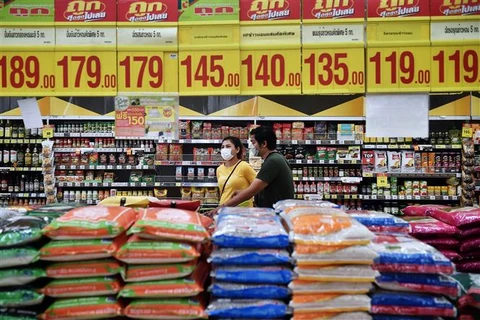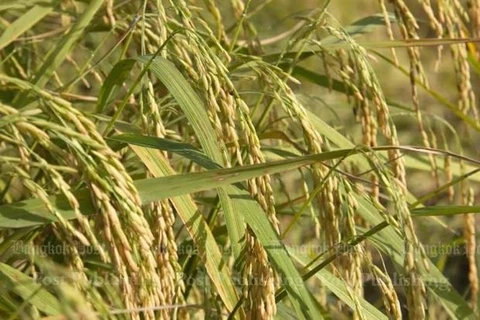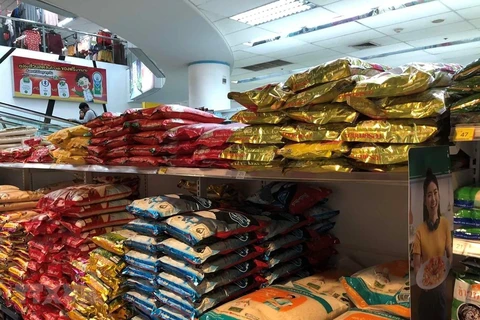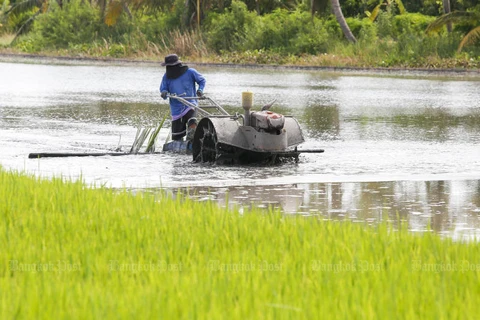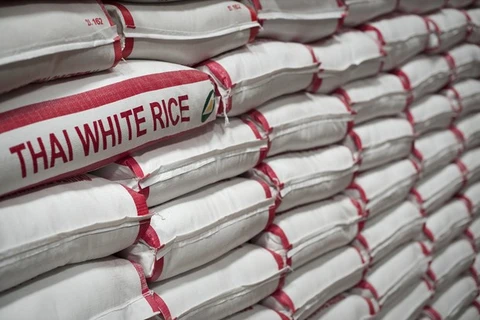Bangkok (VNA) – Thai Deputy Prime Minister and Commerce Minister Jurin Laksanawisit has pledged to speed up adjustment of the country’s rice strategy as quickly as possible as the industry is facing an array of challenges, including a strong baht and rising production costs.
Local media quoted the official as saying after presiding over a recent Thai hom mali fragrant rice fair that rice exports have fared poorly since the beginning of last year because of foreign exchange swings and the ascendant baht, making Thai rice more expensive than competing grains.
The country’s Ministry of Commerce is pursuing a rice strategy to improve competitiveness, covering all systems including marketing, cultivation and R&D of new rice varieties, Jurin said, noting that it is also working to find ways to reduce production costs for farmers to make Thai rice more affordable.
He added it is promoting seven rice products and seed development as part of a marketing-led production strategy for 2020-24 recently announced by the ministry.
Jurin said the ministry will work closely with the Thai Rice Exporters Association to seek new trade partners to expand the export market, as Thai rice remains in strong demand globally given its quality.
The ministry has also ordered commercial ambassadors in various countries to accelerate seeking new markets and promote Thai rice to reach more consumers in overseas markets.
The official confirmed that the strong baht and the coronavirus pandemic are the main obstacles for rice exports this year.
The Thai Rice Exporters Association recently lowered its export forecast for 2020 to 6.5 million tonnes, the lowest in 20 years, from an earlier forecast of 7.5 million due to a host of headwinds./.
VNA

